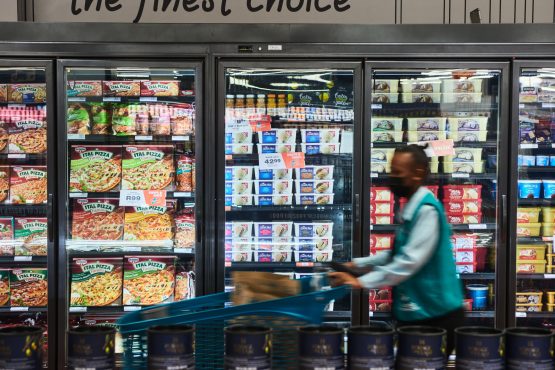Inflation cools to 6.8% in April

South Africa’s inflation rate eased to 6.8% in April, tracking at 11-month lows as food prices cooled slightly.
The Consumer Price Index (CPI) decreased by 30 basis points in April, down from 7.1% in March. This is the lowest reading since May last year, Statistics SA (Stats SA) said on Wednesday.
The latest inflation print comes on the eve of the South African Reserve Bank’s (Sarb) interest rate announcement when its policymakers are expected to hike rates by 25 basis points (bps) or 50bps.
At 6.8%, the inflation rate still sits above the upper end of Sarb’s 3% to 6% inflation target band.
Although food prices came down slightly, slowing to 13.9% in April, the food and non-alcoholic beverages category remained the biggest driver of inflation during the month.
Bread and cereals recorded the most significant annual rises, increasing by 20.8%. Although this category was higher than March’s 20.3% reading, it was lower than the peak in January when bread and cereal prices rose to 21.8%.
Over the past year, the average price of a 2l carton of fresh full-cream milk has risen to R35.88 from R30.14, while the average cost of a kilogram of cheddar cheese climbed to R135.11 from R118.24.
A tray of six eggs cost consumers R21.59 in April, compared to R20.38 a year ago.
Meat, oils and fats moved in the opposite direction inflation-wise, with meat slowing for the second month to 9.5%, from 10.6% in March, while oils and fats slowed for an eighth consecutive month to 9.9% from 16% in March.
“This was mainly due to the annual rate for fuel easing to 5% – the lowest reading since March 2021 (2.4%).”
The vehicles category, which accounts for 5.9% of the CPI basket, increased to 7.2% in April from 7% the previous month.
“Used vehicles are 12.9% more expensive than a year ago. New vehicles witnessed slower inflation, with prices increasing 6.7% over this period,” the agency said.
Following the latest figures, FNB economist Koketso Mano, expects inflation to slow further to 6.3% in May with food prices remaining at elevated levels.
However concerns linger about the impacts of load shedding with the peak demand winter season setting in
By the end of the year, Mano expects average headline inflation to land around the upper band of the inflation target range of 6%.
She added that weakening in the rand over the past weeks as well as load shedding, may keep inflation risks elevated ahead of the interest rate announcement tomorrow.
“The impact on aggregate demand is likely to be mired by the ongoing investment into alternative sources of energy. In line with this, consensus expectations are for the MPC to hike rates by another 25bps to 50bps,”
The assumptions would bring the repo rate to 8% or 8.25%.
“A continuation of the hiking cycle would showcase the Monetary Policy Committee’s (MPC) efforts to uphold their credibility in guiding inflation to target, especially in a time when global inflation remains elevated,” Mano said.
“It will also show their aim at avoiding under-tightening, which would be harder to reverse and have more adverse implications for the economy when inflation expectations remain elevated, and policy needs to be much tighter than the current trajectory,” she said.
Independent economist Professor Bonke Dumisa, said the cooling in inflation presents case for the Sarb raise rates only by 25bps.
“I believe this must be a good reason for the MPC to effect a repo rate increase of only 25bps tomorrow ,” said Dumisa.

